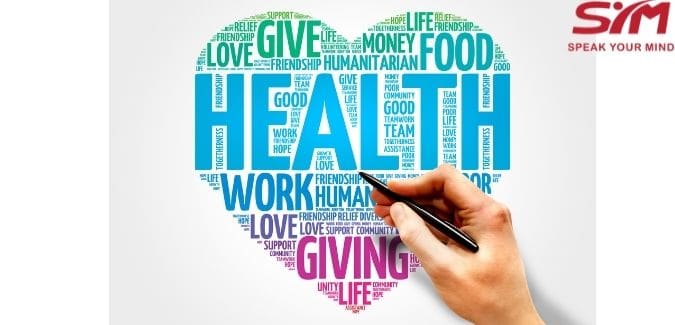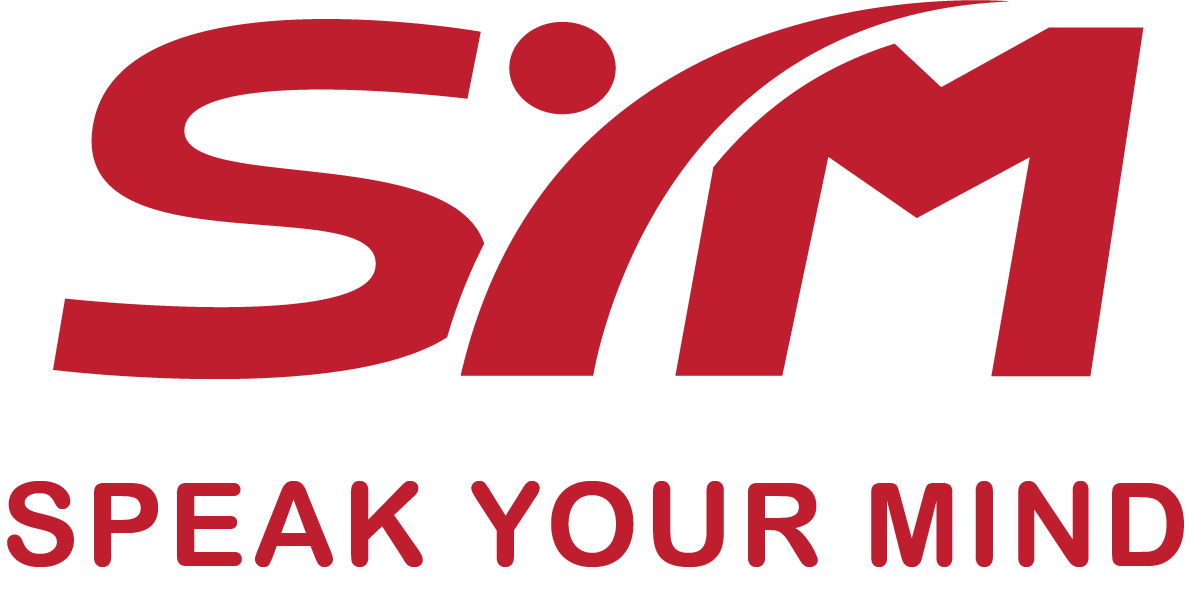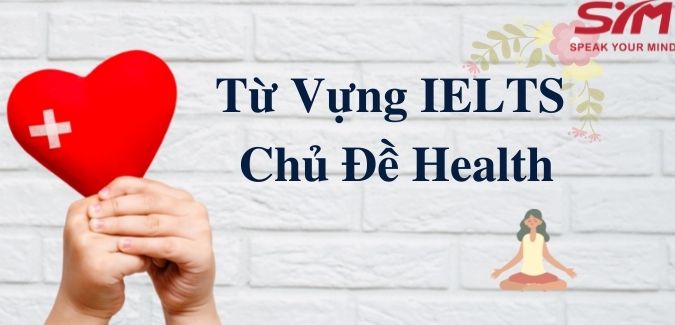Tiếp nối các chủ đề từ vựng IELTS theo chủ đề Food, Tính cách, Các mối quan hệ thì Từ vựng IELTS chủ đề health cho speaking và writing là chủ đề tiếp theo SYM English muốn giới thiệu đến với các bạn. Cách dùng các từ vựng ielts ra sao, có các từ vựng tiếng anh chủ đề sức khỏe nào? Các từ vựng chủ đề Health có ví dụ ra sao? Có các từ vựng thành ngữ về chủ đề health nào?
Xem thêm
Contents
Từ Vựng IELTS Chủ Đề Health – Advanced IELTS Vocabulary

>>>>Tải bản trọn bộ 1000+ từ vựng IELTS các chủ đề về quần áo, gia đình, mối quan hệ….. TẠI ĐÂY
Trong bài viết này SYM English sẽ giúp bạn biết các từ vựng thường gặp của chủ đề health để các bạn ghi nhớ dễ hơn. Các từ vựng IELTS chủ đề health được đội ngũ giáo viên của SYM English biên soạn, hi vọng sẽ giúp các bạn đạt điểm cao. Từ vựng cũng đã được dịch chi tiết để các bạn có thể áp dụng dễ dàng hơn.
Từ vựng IELTS health – các vấn đề sức khỏe (Health problems)
Health problems (các vấn đề sức khỏe)
- Scalp: the skin covering the part of the head where your hair is. (da đầu). If it itches (or is itchy (ngứa)), you want to scratch it. (gãi)
E.g. I had an itchy scalp until I started using this special shampoo.
- A splitting headache: a very bad headache. (đầu đau như búa bổ)
E.g. I’ve got a splitting headache.
- Hay fever: an allergy affecting the nose, eyes, and throat, caused by pollen from plants. (bị sốt)
E.g. I suffer from hay fever in the summer.
- An ulcer: small sore areas inside the mouth, usually lasting a few days. (một vết loét)
E.g. Why does he get mouth ulcers?
- To dislocate: put a bone out of its normal position. (trật khớp)
E.g. I have dislocated his shoulder from him.
- A rash: an area of red spots on the skin, caused by an illness or a reaction to sth (phát ban); Be nasty = unpleasant (also a nasty accident) (khó chịu).
E.g. That’s a nasty rash on your arm.
- An upset stomach: a stomach problem causing sickness or diarrhea (= passing waste from the body too often and in liquid form). (bị đau bụng)
E.g. I had an upset stomach this morning. (or I had a stomach upset …)
- Be constipated: unable to move waste material from the body (Noun: constipation) (bị táo bón)
E.g. I often get constipated on holiday.
- Blood pressure: the pressure of the blood as it moves round the body. (High and low blood pressure are problem conditions.) (huyết áp)
E.g. My mother’s got high blood pressure.
- To sprain sth: injure a part of the body (usually the wrist or ankle) by turning it suddenly. (bị bong gân)
E.g. I sprained my ankle running. I have pulled a muscle in training.
(Synonym: to twist sth/ pull a muscle/ injure a muscle by stretching it too much.
- A blister: a sore swelling on the surface of the skin (here on the back of the foot) often caused by rubbing or burning. (bị mụn rộp)
E.g. I’ve got a blister on my heel from wearing those new shoes.
Từ vựng IELTS health – Other symptoms (những triệu chứng khác)
- (Get) a cold: a common infection, especially in the nose and throat, that causes you to cough and sneeze and your nose to run (= drip liquid) or feel blocked (bị cảm lạnh)
- (Get) a cough: an illness that makes you cough a lot (bị ho)
- (Get) a sore throat: a condition in which your throat is red and feels painful, especially when you swallow (viêm họng)
- (Get) a temperature: a higher temperature than normal (bị sốt)
- A stomach ache: pain in your stomach (đau dạ dày)
- An earache: a pain in the ear (đau tai)
- a bruise on my leg: an injury or mark where the skin has not been broken but is darker in colour, often as a result of being hit by something (vết thâm tím)
- a black eye: an area of skin around the eye that has gone dark because it has been hit (mắt thâm tím)
- a lump on my arm (a hard swelling found in or on the body, especially because of illness or injury: cục bướu)
- Indigestion: after eating too fast (chứng khó tiêu)
- Sickness and diarrhea: an upset stomach which makes you vomit and need to go to the toilet frequently (đi ngoài)
- Sunburn: a condition in which your skin is sore and red because you have spent too long in the strong heat of the sun (cháy nắng)
- Painful joints: pain where two bones are connected (đau nhức xương khớp)
- Be dizzy (my head is spinning: chóng mặt) / breathless/shivery (cold and hot/faint (light-headed: choáng, ngất lịm đi).
- Be constipated: not able to go to the toilet / tired all the time (táo bón)
- To lose my appetite: not eat well (mất đi sự ngon miệng);
- To itch: want to scratch it (ngứa)
Từ Vựng IELTS Chủ Đề Health – Doctor

Phần này chúng ta sẽ đến với các từ vựng health liên quan đến bác sĩ, Hãy xem có các từ vựng nào và các từ vựng được dùng ra sao nhé.
What do doctors do? (Bác sĩ làm gì?)

>>>>Tải bản trọn bộ 1000+ từ vựng IELTS các chủ đề về quần áo, gia đình, mối quan hệ….. TẠI ĐÂY
They take your temperature, listen to your chest, look in your ears, examine you, take your blood pressure, ask you some questions and weigh and measure you before sending you to the hospital for further tests.
- To take one’s temperature: to measure a person’s body temperature with a thermometer (đo nhiệt độ cơ thể)
- Listen to your chest (nghe lồng ngực)
- To take one’s blood pressure: measure one’s blood pressure (đo huyết áp)
More on doctors’ responsibilities (các trách nhiệm khác của bác sĩ)
- To discharge smb: to allow someone officially to leave somewhere, especially a hospital (cho ai xuất viện)
- To prescribe: to say what medical treatment someone should have (kê đơn thuốc)
Từ vựng IELTS liên quan đến tiến bộ y học

>>>>Tải bản trọn bộ 1000+ từ vựng IELTS các chủ đề về quần áo, gia đình, mối quan hệ….. TẠI ĐÂY
A revolutionary era in medical advances (một kỷ nguyên có tính cách mạng trong tiến bộ y học)
- In recent decades, we have witnessed radical changes in conventional medicine.
- Fifty years ago, scanners did not exist. Diagnostic tools were restricted to stethoscopes and basic x-ray machines.
- Until recent years, children were prone to certain infectious diseases, for which there was no effective cure. Vaccines have almost eradicated some of these conditions.
- In the past, if you needed a major operation, you would be confined to bed for weeks. Today many operations use less invasive procedures, requiring day surgery only.
- In the past, the mortality rate for patients with organ failure, such as heart, lung, or kidney failure, was 100 percent. Today, transplants can allow patients to resume a normal life.
- The survival rate for many cancers has improved considerably over recent decades, due to the development of chemotherapy to treat the condition.
- An era: a period of time that has a particular quality or character (kỷ nguyên)
- An advance: progress made in science, medicine, technology, etc. (tiến bộ)
- A decade: a period of ten years (thập kỷ)
- Be conventional: usual or traditional; not new or different (Noun: convention) (truyền thống, thông thường)
- A scanner: a device used for finding out what physical or mental problem sb has (máy quét ảnh)
- To diagnose: to recognize and name the exact character of a disease or other problem by making an examinationVerb: diagnose, Noun: diagnosis) (chẩn đoán)
- To restrict: limit the size, number, or amount of sth (Noun: restriction) (giới hạn, hạn chế)
- Be prone to: likely to suffer from sth (also accident-prone) (có nguy cơ chịu đựng cái gì)
- A cure: a medical treatment that makes a sick person well again (Verb: To cure, ADJ: Be curable, Opposite: Be incurable) (cách chữa bệnh)
- A vaccine: a substance which is put into the blood and protects the body from disease (the process of giving the vaccine is vaccination N) (Verb: vaccinate) (Vắc xin)
- To eradicate: destroy or get rid of sth (bad) completely (Synonym: to wipe sth out) (xoá sổ, diệt bỏ)
- A condition: a long-term illness or medical problem (tình trạng bệnh tật)
- Be confined to bed: have to stay in bed (nằm lì ở giường để hồi phục)
- Be invasive: (of medical treatment) involving cutting of the body (Noun: invasion, Verb: To invade) (xâm lấn)
- A procedure: a medical operation or investigation (carry out / perform a procedure) (thủ tục, quy trình)
- An organ: a part of the body that has a particular purpose, such as the heart or brain (cơ quan của cơ thể)
- A transplant: an operation in which a damaged organ is replaced with one from a donor (= sb who gives part of their body, blood, etc.) (Verb: To transplant) (Cấy ghép)
- To resume life: begin sth again after an interruption (Noun: resumption) (tiếp tục sự sống)
- Chemotherapy: the treatment of diseases, especially cancer, by drugs (Xạ trị)
Từ Vựng IELTS Chủ Đề Health – Idiom ( Thành Ngữ)
- To throw up: to vomit (nôn, chớ)
- To have a new lease on life: to be an occasion when you become more energetic and active than before (sống khỏe mạnh, nhanh nhẹn hơn)
- To have a spring in one’s step: have a happy, energetic, and excited mood or manner (vui tươi, vui vẻ)
- As fit as a fiddle: to be very healthy and strong (rất khoẻ mạnh)
- Be the picture of health: to look very healthy (rất khoẻ mạnh)
- Out of shape: not physically healthy enough for difficult exercise because you have not been involved in physical activities (thiếu sức khoẻ thể chất)
- To have a frog in one’s throat: lose one’s voice or find it hard to speak because of hoarseness (giọng khàn, khó nghe)
- As pale as a ghost: be exceptionally pale, as due to nausea or fear (mặt tái nhợt)
- A sick as a dog: very sick (ốm nặng)
- A bitter pill to swallow: something that is very unpleasant but must be accepted (sự thật đắng lòng)
- To be back on one’s feet: to become healthy again after a period of illness (khỏe trở lại)
- Be on the mend: to get better after an illness (đang hồi phục sau bệnh tật)
- At the death’s door: very ill, on the point of dying (ốm rất nặng, ốm thập tử nhất sinh)
- Be under the weather: not feeling well (không thấy khoẻ, mệt)
- Be under the knife: having a medical operation (đang có ca phẫu thuật)
Trên đây, SYM English đã giới thiệu cho bạn các 100 từ vựng IELTS chủ đề Health, bạn có thể áp dụng các từ vựng chủ đề health cho speaking và writing và giao tiếp hàng ngày. Đừng quên đón đọc các bài viết tiếp theo trên web sym.edu.vn để cập nhật các kiến thức tiếng Anh hữu ích bạn nhé!
Trong quá trình sử dụng tài liệu của SYM, các bạn có góp ý hoặc cần hỗ trợ các bạn hãy liên hệ Fanpage SYM English để nhận hỗ trợ nhanh nhất từ sym.edu.vn.
Để có thêm nhiều tài liệu học IELTS hơn các bạn vào Group Facebook để tải!
Đăng ký kênh youtube : https://bit.ly/dang-ky-kenh-SYM để xem nhiều video có ích giúp bạn tăng band điểm cao hơn.
SYM English chúc bạn học IELTS thật tốt với bài viết từ vựng IELTS chủ đề Health.

